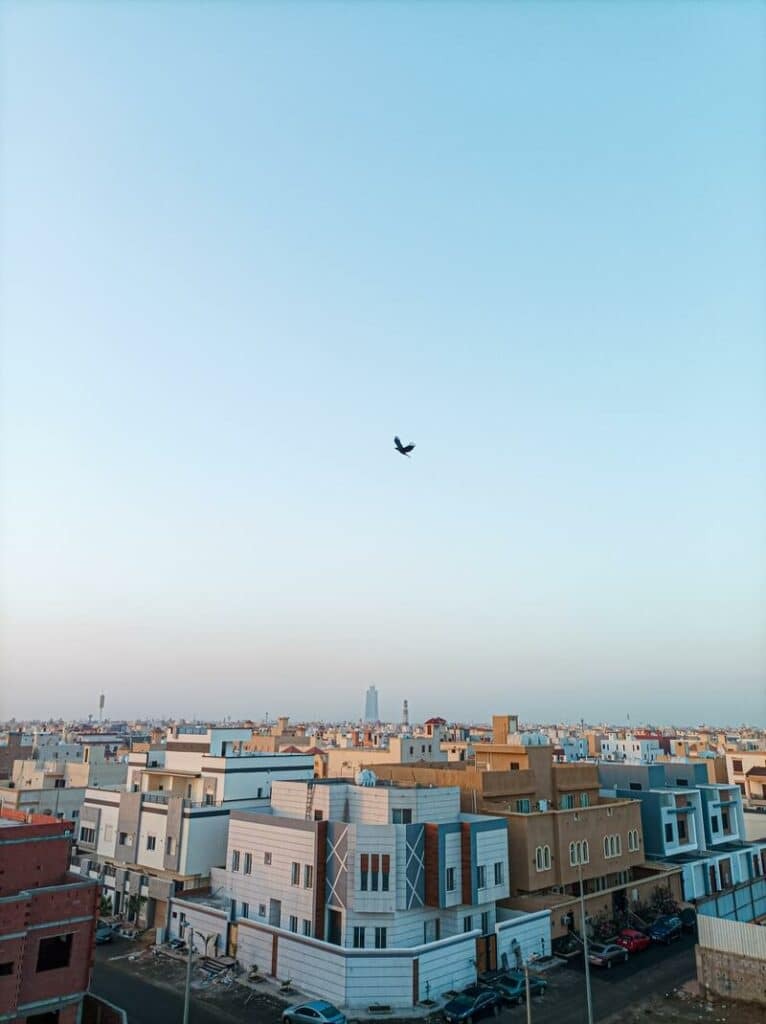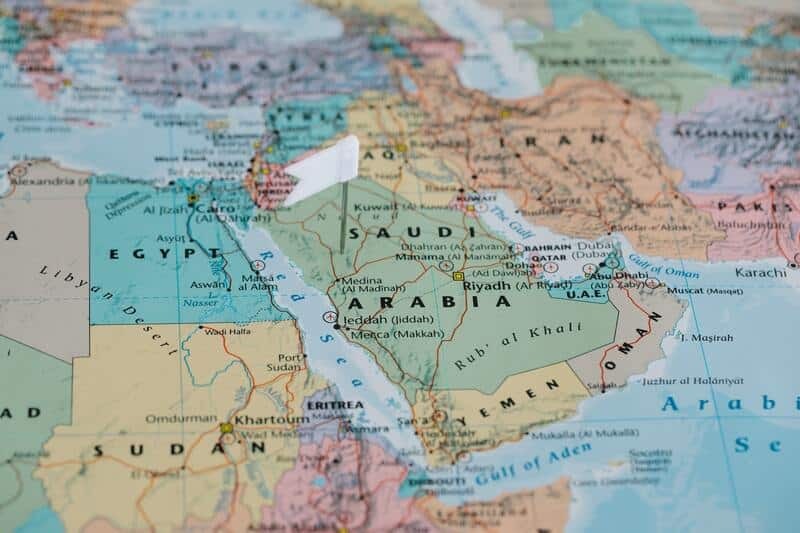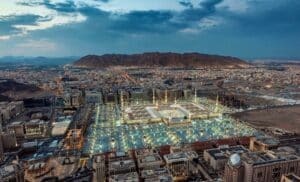Knowing the cheapest areas to buy a house in Saudi Arabia can be a life-changing piece of information for those who are planning to invest in real estate.
Whether you are a first-time buyer or a seasoned investor, knowing where to find affordable homes can make a huge difference in your budget.
With this in mind, the purpose of this blog is to provide valuable insights into the most affordable areas to buy a house in Saudi Arabia.
By exploring various factors that influence the cost of housing in Saudi Arabia, we hope to offer a comprehensive guide to help homebuyers save money while still finding a home that meets their needs.
If you are looking to invest as an expat or high-net-worth individual, which is what I specialize in, you can email me (advice@adamfayed.com) or WhatsApp (+44-7393-450-837).
Table of Contents
What are the cheapest areas to buy a house in Saudi Arabia?
Here are five of the most affordable areas to buy a house in Saudi Arabia:
Al Kharj
Located in the Riyadh Province, Al Kharj is known for its relatively affordable housing options. This city is popular among those who work in the capital city of Riyadh but want a more affordable housing option. Al Kharj has several modern developments, including apartments, villas, and townhouses, with a price range that can be accessible to many budgets.
Al Qassim
Situated in the heart of Saudi Arabia, Al Qassim has a lower cost of living and relatively affordable housing prices compared to other major cities in the country. The city has a range of properties, from small apartments to large villas, and the prices can be lower than in other parts of the country.
Najran
Located in the south of Saudi Arabia, Najran has a lower cost of living and is known for offering affordable housing options. The city has a mix of traditional and modern architecture, and there are several new housing developments available at lower prices.
Hail
This city is located in the north of Saudi Arabia and is known for its affordable real estate prices. Hail has several new housing projects, including apartments and villas, with prices that are significantly lower than in other parts of the country.
Al Bahah
Located in the southwest of Saudi Arabia, Al Bahah is known for offering affordable housing options. The city has a mix of modern and traditional architecture, and there are several new housing developments available at lower prices. Al Bahah is also known for its natural beauty, with several parks and green spaces.

What factors determine the cost of housing in Saudi Arabia?
Various factors determine the cost of housing in Saudi Arabia. Hence, it’s essential to research the local real estate market and consult with a local real estate agent to get accurate and up-to-date information.
Several factors can influence the cost of housing in Saudi Arabia, including:
Location
The location of the property is one of the most critical factors that can affect its cost. Properties located in urban areas, such as Riyadh, Jeddah, and Dammam, are typically more expensive than those in rural areas.
Property size and type
The size and type of the property, such as a villa, apartment, or townhouse, can also influence its cost. Larger properties are generally more expensive, and villas are typically more expensive than apartments.
Amenities and facilities
The presence of facilities and amenities, such as parks, schools, hospitals, shopping centers, and entertainment venues, can also impact the cost of housing in Saudi Arabia. Properties that are located close to these amenities are often more expensive.
Demand and supply
The law of supply and demand can significantly impact the cost of housing in Saudi Arabia. When there is a high demand for housing in a particular area and a limited supply, prices tend to increase.
Economic conditions
Economic conditions in the country, such as inflation, interest rates, and GDP growth, can also impact the cost of housing. When the economy is booming, the demand for housing tends to increase, leading to higher prices.
Infrastructure
The presence of good roads, transport links, and other infrastructure can impact the cost of housing in Saudi Arabia. Properties located near major roads and highways, for example, may be more expensive than those in more isolated areas.
What are the advantages of buying a home in a cheaper area in Saudi Arabia?
Buying a home in a cheaper area in Saudi Arabia can provide several advantages:
Lower Cost
The most obvious advantage of buying a home in a cheaper area is the lower cost. Properties in cheaper areas are generally more affordable than those in more expensive areas, which can help homebuyers save money and stay within their budget.
Higher Return on Investment
Buying a property in a cheaper area can provide higher returns on investment in the long run. As the area develops and becomes more popular, property values may increase, allowing homeowners to sell at a higher price than they purchased.
Larger Property
Buying a home in a cheaper area can often mean that homebuyers can afford a larger property than they would be able to purchase in more expensive areas. This can be especially advantageous for families who need more space or for those who wish to invest in rental properties.
Less Competition
Properties in cheaper areas often have less competition, making it easier for homebuyers to find the home they want without having to engage in bidding wars or compete with multiple offers.
Access to Amenities
Cheaper areas can often provide access to the same amenities as more expensive areas, including shopping centers, hospitals, and schools.
Potential for Growth
Cheaper areas can be areas that are developing and may have the potential for growth. By investing in these areas, homebuyers can benefit from the potential for new developments and infrastructure improvements, which can increase the value of their property over time.
What are the drawbacks of buying a home in a cheaper area in Saudi Arabia?
While buying a home in a cheaper area in Saudi Arabia can have its advantages, there are also some drawbacks to consider, including:
Location
Cheaper areas are often located further away from the city center or maybe in less desirable locations, which can impact the property’s resale value and its desirability to potential buyers.
Limited amenities
Cheaper areas may have limited amenities, such as schools, hospitals, and shopping centers, which can be inconvenient for residents who need access to these facilities.
Security concerns
Cheaper areas may have higher crime rates, which can be a concern for homeowners and may result in higher security costs.
Lower-quality construction
Properties in cheaper areas may have lower-quality construction, which can result in higher maintenance costs and may require more frequent repairs.
Transportation
Cheaper areas may have limited public transportation options, making it more difficult for residents to commute to work or access other parts of the city.
Resale value
The resale value of a property in a cheaper area may be lower than in more expensive areas, which can impact the potential return on investment for homeowners.

What should buyers consider when looking for a home in a cheaper area in Saudi Arabia?
When looking for a home in a cheaper area in Saudi Arabia, buyers should consider the location of the property is a crucial factor to consider. Buyers should research the neighborhood, access to amenities, and proximity to public transportation or major roads.
Buyers should also consider the size and type of property they need, including the number of bedrooms, bathrooms, and living spaces.
The availability of infrastructure, such as electricity, water supply, and internet connectivity, should be considered when purchasing a property.
The quality of construction should be considered, as lower-quality construction may result in higher maintenance costs and lower resale value.
Buyers should ensure that all legal documentation, including title deeds and contracts, is in order before purchasing a property. Buyers should also research their financing options, including mortgage options, to ensure that they can afford the property they want to buy.
Having a professional inspection done before making a purchase to identify any potential issues with the property is also important.
Buyers should also consider the potential resale value of the property in the future. It is crucial to research the security situation in the area before making a purchase to ensure their safety.
Lastly, consultation with a local real estate agent who can provide valuable insights into the local housing market can help make an informed decision.
What are the financing options available for buying a home in Saudi Arabia?
It’s essential to research the different financing options available and consult with a financial advisor or a local bank to determine the best option for your needs and financial situation.
There are several financing options available for buying a home in Saudi Arabia, including:
Conventional mortgage
A conventional mortgage is a type of loan where the borrower pays a down payment, and the lender provides the remaining amount. The borrower then repays the loan over a specified period, typically between 5 to 30 years.
Islamic mortgage
An Islamic mortgage is a Shariah-compliant alternative to a conventional mortgage. Instead of charging interest, the lender and borrower enter into a partnership and the lender shares in the property’s profits and losses.
Home finance programs
The Saudi government offers several home finance programs, such as the Real Estate Development Fund (REDF) and the Saudi Industrial Development Fund (SIDF), to help citizens and residents buy their homes. These programs offer subsidized interest rates and flexible repayment terms.
Personal loans
Personal loans can be used to finance a home purchase, although they may have higher interest rates than other financing options.
Employer housing schemes
Some employers in Saudi Arabia offer housing schemes as part of their employment benefits, where they provide financial assistance to their employees for purchasing homes.
How does the real estate market in Saudi Arabia differ from other countries?
The real estate market in Saudi Arabia differs from other countries in several ways. Foreigners are allowed to purchase real estate in Saudi Arabia, but the process is more complicated than in some other countries.
For example, foreigners must obtain permission from the Saudi Arabian General Investment Authority (SAGIA) and meet certain eligibility criteria.
The Saudi Arabian real estate market has traditionally been stable, with minimal fluctuations in prices. This stability is due to the Saudi Arabian government’s efforts to regulate the market and prevent speculative investment.
Interest rates in Saudi Arabia are also generally higher than in other countries, which can impact the cost of borrowing for real estate investments.
Cultural factors, such as the importance of family and social connections, can also impact the real estate market in Saudi Arabia. For example, some families prefer to purchase homes in the same neighborhood or building as their relatives.
The Saudi Arabian government plays a significant role in the real estate market, with regulations and policies aimed at encouraging investment and preventing speculation.
The demographics of the Saudi Arabian population, including the high number of young people and the country’s rapid urbanization, can impact the real estate market.
For example, there is a growing demand for affordable housing for young families, which has led to an increase in the construction of smaller homes and apartments.
Lastly, financing options for real estate investments in Saudi Arabia differ from other countries, with Islamic financing and government-sponsored programs being popular options.

What are the legal requirements for buying a home in Saudi Arabia?
The legal requirements for buying a home in Saudi Arabia include:
Residence permit
Non-Saudi nationals need to obtain a valid residence permit before purchasing a property in Saudi Arabia.
Permission from the Saudi Arabian General Investment Authority (SAGIA)
Foreigners need to obtain permission from SAGIA before purchasing a property in Saudi Arabia.
Proof of payment
The buyer must provide proof of payment for the property, such as bank transfer or check.
Land registry
The property must be registered with the Land Registry office, and the buyer must obtain the necessary documents, including the title deed.
Property taxes
There are no property taxes in Saudi Arabia, but buyers may be required to pay other taxes, such as zakat or capital gains tax.
Real estate agent
Buyers may choose to use a real estate agent to help them find and purchase a property. The agent will assist with the legal requirements and ensure that all necessary documents are obtained.
Contract
The buyer and seller must sign a contract that outlines the terms and conditions of the sale. The contract must be in Arabic, and the buyer should ensure that they understand all the terms before signing.
Down payment
The buyer must pay a down payment, typically between 10% and 30% of the property’s purchase price, at the time of signing the contract.
Final payment
The buyer must make the final payment at the time of transferring the property’s ownership to their name.
It’s essential to consult with a local real estate agent or lawyer to ensure that all legal requirements are met when purchasing a property in Saudi Arabia.
Additionally, it’s crucial to obtain all necessary documents and ensure that the property has a clear title before making a purchase.
What are the tax implications of buying a home in Saudi Arabia?
In Saudi Arabia, there are no property taxes on the sale or purchase of residential properties. However, there are other taxes that may be applicable to a property purchase, such as:
Value-Added Tax (VAT)
A 5% VAT is levied on the sale of new properties, including apartments and villas unless the property is part of a government housing program.
Zakat
Zakat is a religious tax in Saudi Arabia that is levied on wealth and assets, including properties. The zakat rate is 2.5% of the property’s market value, and it is payable by the owner.
Capital gains tax
Capital gains tax is a tax on the profit earned from the sale of an asset, including property. The capital gains tax rate in Saudi Arabia is 20%, but it only applies to non-Saudi nationals and companies that sell properties within five years of the purchase date.
It’s essential to consult with a tax advisor or a local lawyer to determine the tax implications of purchasing a property in Saudi Arabia, as tax regulations can vary depending on the individual’s circumstances and the type of property being purchased.
Conclusion
Purchasing a home in a cheaper area in Saudi Arabia can be an excellent option for homebuyers looking for affordable and convenient living.
However, buyers should consider several factors before making a purchase, such as the location, property size and type, quality of construction, financing options, legal requirements, and potential resale value.
Additionally, buyers should consult with a local real estate agent or lawyer to ensure that they are making an informed decision and complying with all legal requirements.
With careful planning and research, buyers can find a home that meets their needs and budget in one of the many affordable areas in Saudi Arabia.
Pained by financial indecision? Want to invest with Adam?

Adam is an internationally recognised author on financial matters, with over 760.2 million answer views on Quora.com, a widely sold book on Amazon, and a contributor on Forbes.



